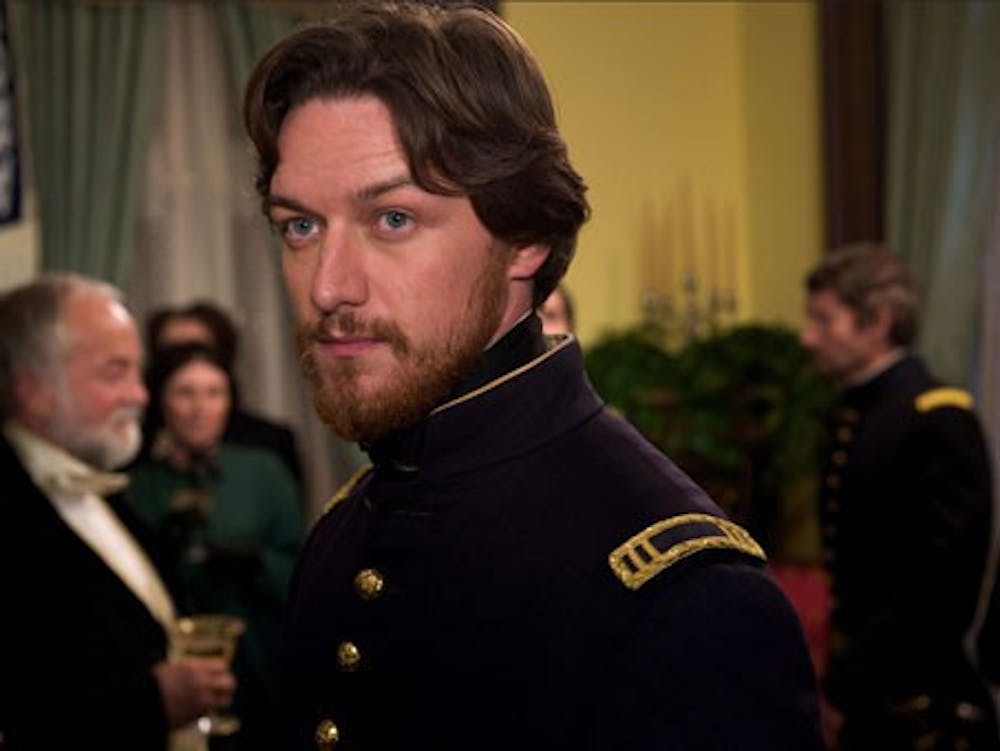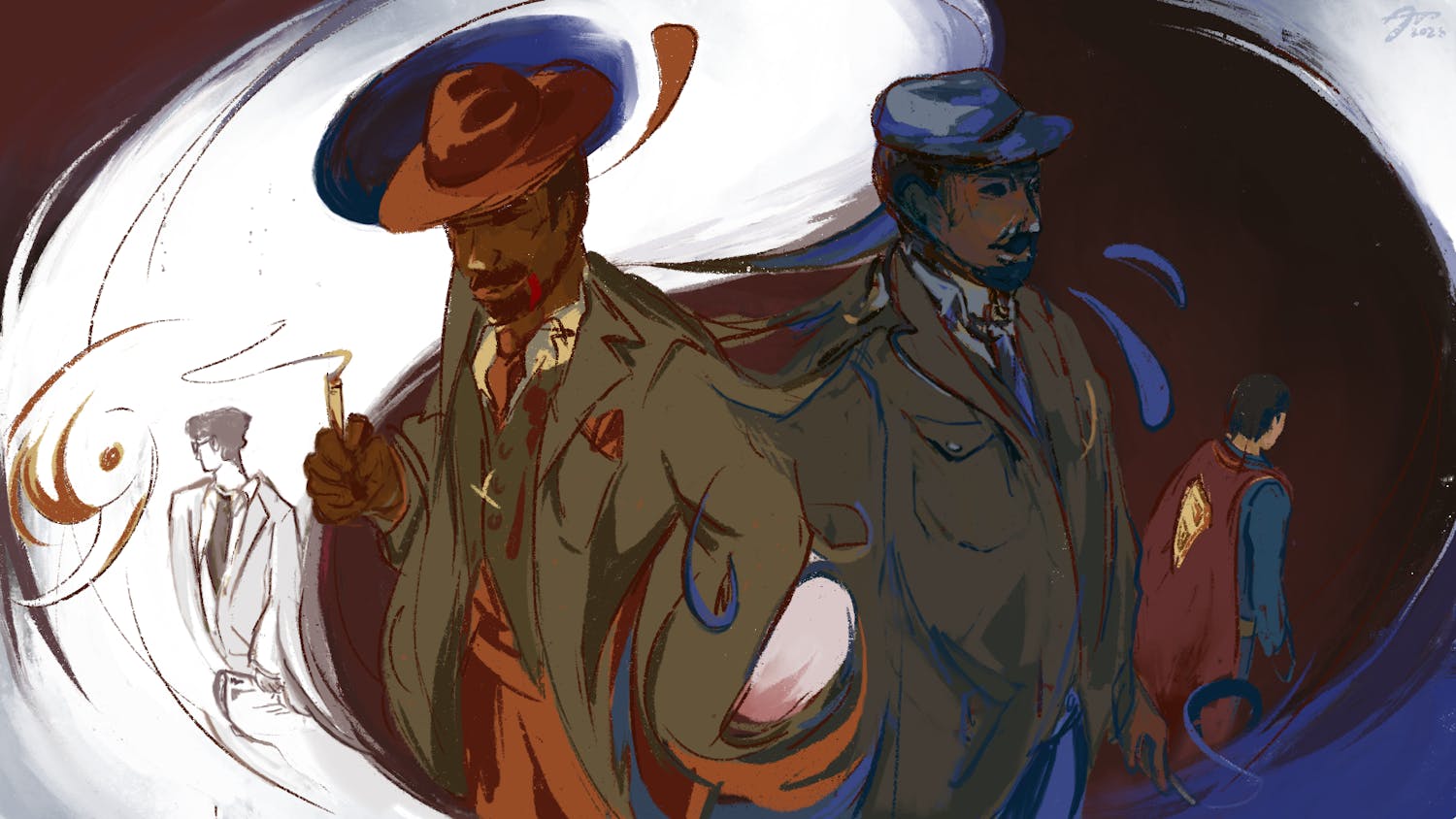While The Conspirator may be a historical drama about the aftermath of the assassination of Abraham Lincoln, its contemporary relevance could hardly be less apparent. The murder of the president has sent Washington — and the rest of the nation, though the film’s limited scope would hardly indicate that — into a frenzied quest for justice. With John Wilkes Booth already murdered, the famous killer’s cohorts are summarily rounded up and arrested. Their Constitutional right to a trial by jury is suspended, and they are instead put in front of a committee of Union army officers at a military tribunal. The rule of law is naught.
Screenwriter James Solomon has insisted that any parallels between The Conspirator and modern–day events are purely coincidental. But the insistence with which the film — which examines the uphill battle of Frederick Aiken (McAvoy) to defend Mary Surratt (Wright) against a menacing prosecutor (Huston) — hammers across the suspension of civil liberties makes one think that director Robert Redford must have made a note to hit the audience over the head with the obvious similarity.
Intent aside, The Conspirator eschews subtlety or ideological ambiguity in favor of didactic storytelling that makes the movie into a history lecture rather than an engaging look at a dark chapter of American history. Even blatantly conspicuous cinematography can’t save the film from descending into the stiffness of the legal trial that portrays; in fact, it detracts from the historical veracity that the film purports.
But what really keeps The Conspirator from being an appealing historical film is the stodgy and stilted acting of its well–credentialed cast. Despite being given a character who embodies a strong ethical debate — Aiken is a former Union captain who finds himself defending a Southern conspirator — McAvoy hardly jumps at the opportunity. His monotonous performance leaves little impact, making the audience question why it’s rooting for Aiken or Surratt at all. Were McAvoy not counterbalanced by the clichéd sinisterness offered by Huston and Kevin Kline (as War Secretary Edwin Stanton), the trial sequences would leave little impression at all.
Wright, on the other hand, is the film’s saving grace. Her initial remoteness gives way to profoundly affective moments, particularly as the film (and for that matter, Mary Surratt) nears its end. But the delivery of the rest of the actors — including Justin Long and Alexis Bledel — is imbued with a theatricality that better fits a murder mystery party in Colonial Williamsburg than a two–hour feature at the Ritz East.
2/5 Stars Directed by: Robert Redford Starring: James McAvoy, Robin Wright, Danny Huston Rated PG-13, 122 min.
http://www.youtube.com/watch?v=4LzovRI4zig







